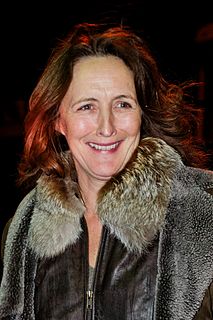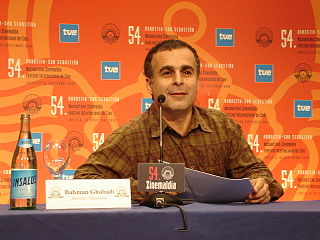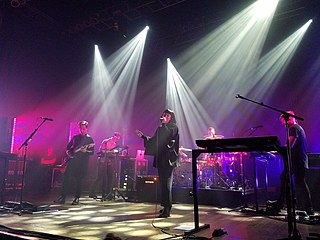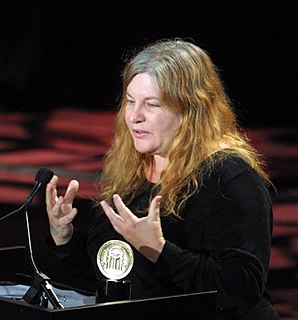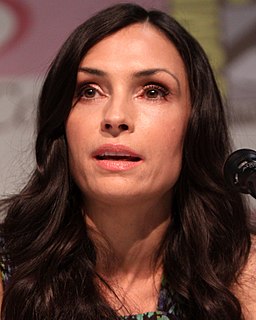A Quote by Paul Greengrass
Some filmmakers are more eclectic than others. I'm not one of those! I'm interested in what I'm interested in, which is films about the world, about what's going on. I started in TV documentaries with 'World in Action,' and those interests feed into the films I make now.
Related Quotes
I do not make films which are prescriptive, and I do not make films that are conclusive. You do not walk out of my films with a clear feeling about what is right and wrong. They're ambivalent. You walk away with work to do. My films are a sort of investigation. They ask questions . . .. Sometimes I hear that some [Hollywood] studio is interested in me. Then they discover that this is the guy who works with no script, that there is no casting discussion, no interference, that I have the final cut, and that does it.
I'm really interested in mythology and folklore. I'm interested in moralities, why we're here, faith... all of these bigger questions that I think we can place in films that allow us to question and give us a safe place to feel. Those types of questions can pop up in all sorts of different types of films - drama, comedy, action movie.
I know, that trends and all of those things and formulae that calculate what audiences want to see and what audiences don't want to see and various other demographic demarcations are the eccentric and ludicrous prerogative of Hollywood studios. But out there in the real world - by which I mean the rest of the world where we make truthful organic films, independent films unimpeded by interference - it's not about all those sort of calculating what is commercial. It's about wanting to say things and saying them in a way that will get through to people.
In an old model, the way a film would imprint itself on the public's consciousness is to get a theatrical run. But now there are more documentaries and more films in general being released than ever before. There are weeks when the New York Times is reviewing 15 films, so it's harder to leave an impression on the public. A lot of these films are seeing their financial future on digital platforms. Because viewers aren't hearing as much about films in theatrical release, I think the festival circuit is going to have increasing importance for the life of a film.
I think when I got drawn to film, I didn't know it was a business. I mean, like most filmmakers, I probably saw more films than a lot of people when I was a kid. But I watched them on TV as well. I was no purist about it. I spent lots of time in movie theaters, but I also watched a lot of films on TV.
Even before the economic crisis in Greece there was no structure for making films - no proper industry, and the structure didn't help filmmakers at all. So filmmakers had to help each other, and make very, very low-budget films. Now with the crisis, things got a bit worse, but filmmakers are still going to be making films. It didn't change that much.
I make films about working class people. All my films have always been about that. For example, the brothel is a workplace. It's aberrant, but a workplace nonetheless. I was more interested as opposed to glamorizing and saying, oh, this is a great erotic place, it's a place of business. The commodity is sex.


